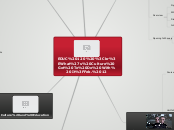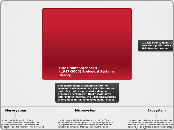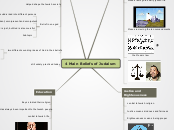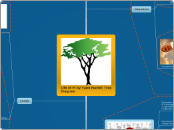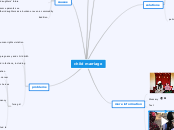EDUC 120
What's Culture Got To Do With It?Feb. 12
Sonia Nieto Article
Small Groups: Going Deeper with the Concept of Culture
What does it mean to say that "culture is socially constructed"? (137-138)
How can culture be associated with power? (135)
How do we decontextualize culture? Native American example? (133)
How can someone be multiple cultural identities at the same time? Culture is not ethnicity (132)
What does it signify when we define "culture" as everything "not white"?
"Dominant groups do not name themselves, they name others." (Terrell, 29).
How does Nieto define it?
What are some of the ways we think about and define "culture" in contemporary US?
Culture and Education
R. McDermott "Achieving School Failure"
Critical/Political Approach
Building "cross-cultural competencies" and code switching
Pedagogical Stance: "The Culture of Power" (Delpit, 24)
5. Those with power are frequently least aware of- or least willing to acknowledge- its existence. Those with less power are often most aware of its existence
4. If you are not already a participant in the culture of power, being told explicitly the rules of that culture makes acquiring power easier
3. The rules of the culture of power are a reflection of the rules of the culture of those who have power
2. There are codes or rules for participating in power; that is, there is a "culture of power."
1. Issues of power are enacted in classrooms
Children not learning in school are not so much broken or different as they are made to appear that way... School failure is a cultural fabrication and is constantly looked for... 127-128
Difference Approach
Pedagogical Stance: "I allow different spellings and pronunciation of words in my classes as it honors the different cultural heritage and traditions of my students and we can all learn from that."
Pedagogical Stance: "I like to celebrate diversity in my classroom. I often have kids bring in special ethnic food from home."
"Children not learning in school are not broken, although they can appear that way because of constant miscommunication organized by cultural and linguistic differences
Deficit Approach
Pedagogical stance: "I don't see race in my classroom, I just see children."
Pedagogical stance: "I just want to give these kids the opportunities they don't have at home."
"Children not learning in school have been broken by impoverished experiences; in addition to suffering a restricted environment, they are now restricted kids
Models and Movements
Cultural Competency/Proficiency (2000's)
Ally/Solidarity
Focused on proactive change at self and structural level
Self and Institutional transformation
Diversity Education (1990's)
"Acceptance"
Individually oriented
Awareness of Privilege
Learning about self and others
Multicultural Education (1970's and 1980's)
"Tolerance"
Passive
Learning about other "cultures"
What's Culture Got To Do With It?
Students of education must contend with culture as a concept... how?
Schools are sites of cultural conflict
Schools can function to legitimate and/or de-legitimate cultural norms
Schools are locations where culture is both reproduced and produced
March 5th
World Cafe!
Same Tables
Look at first Cultural Continuum on pg. 31.
What takeaways do you have from this in terms of your own work on diversity? As a citizen? Possible teacher?
Where does Earlham need to go from here?
What do you see from these lists?
Organize your lists of examples by theme, type (e.g. school policy, classroom statements, co-curricular, etc.)
Generate examples from Earlham context
Cultural Destructiveness, Cultural Incapacity, Cultural Blindness, Cultural Precompetence
"Tables of 4"
# 4 What was a first memory of "cultural difference" for you growing up?
#3 What is something I should know about you that would help me to get to know you better?
#2 Moment of Courage
#1 Favorite Place?
Next Time
"Passages of Significance" on Moodle
Explain, briefly, why you thought it was a "passage of significance"
Cite it/quote it so we know where it is in the text
Choose one passage you found significant, thought provoking, or controversial
Read Rodriguez Parts 1-2
Diversity-Domestic Goals
Explore theories of race, gender, sexual orientation, class, ethnicity, or other socially constructed categories
Examine the ways definition is an act of power
Why Relevant?
Pluralism and Democracy (Nieto Pg 127). Is democracy about "safety"? About "getting along"? About deliberative conflict?
"Majority-Minority" demographics
Residential Segregation
Multiculturalism in the curriculum
Affirmative Action
Achievement Gaps
Unit Two Themes
The One and The Many...
Brown v Board Case
Identity and Schooling with particular focus on race and ethnicity
SOAN emphasis
Hunger of Memory (anchor text)
Course Units
Unit Four: Sustainability and Schooling
Unit Three: Schooling and the Market
Unit Two: Schooling and Identity
Unit One: Democracy and Education
Why do this? Chunking, Make it overt, Patterns
Openers
Opening query
What was you first "cultural" memory in school?
What's culture got to do with it? (Education, that is)
Overview
Intro to Culture and Education
Discuss Nieto's article
Where Are We Now?
Key Takeaways
Link these concepts to our exploration of democracy and schooling
Discuss versions of “multicultural” education
Introduce key concepts of culture and identity
New Unit!
Last Time
Wrapped up Dewey and Democracy
Song of the Day!
Teach, your children well
Their father's hell
Did slowly go by
And feed them on your dreams
The one they pick's
The one you'll know by.
Don't you ever ask them why
If they told you, you would die
So just look at them and sigh
And know they love you.
Teach your parents well
Their children’s hell
Will slowly go by
And feed them on your dreams
The one they pick's
The one you’ll know by.
